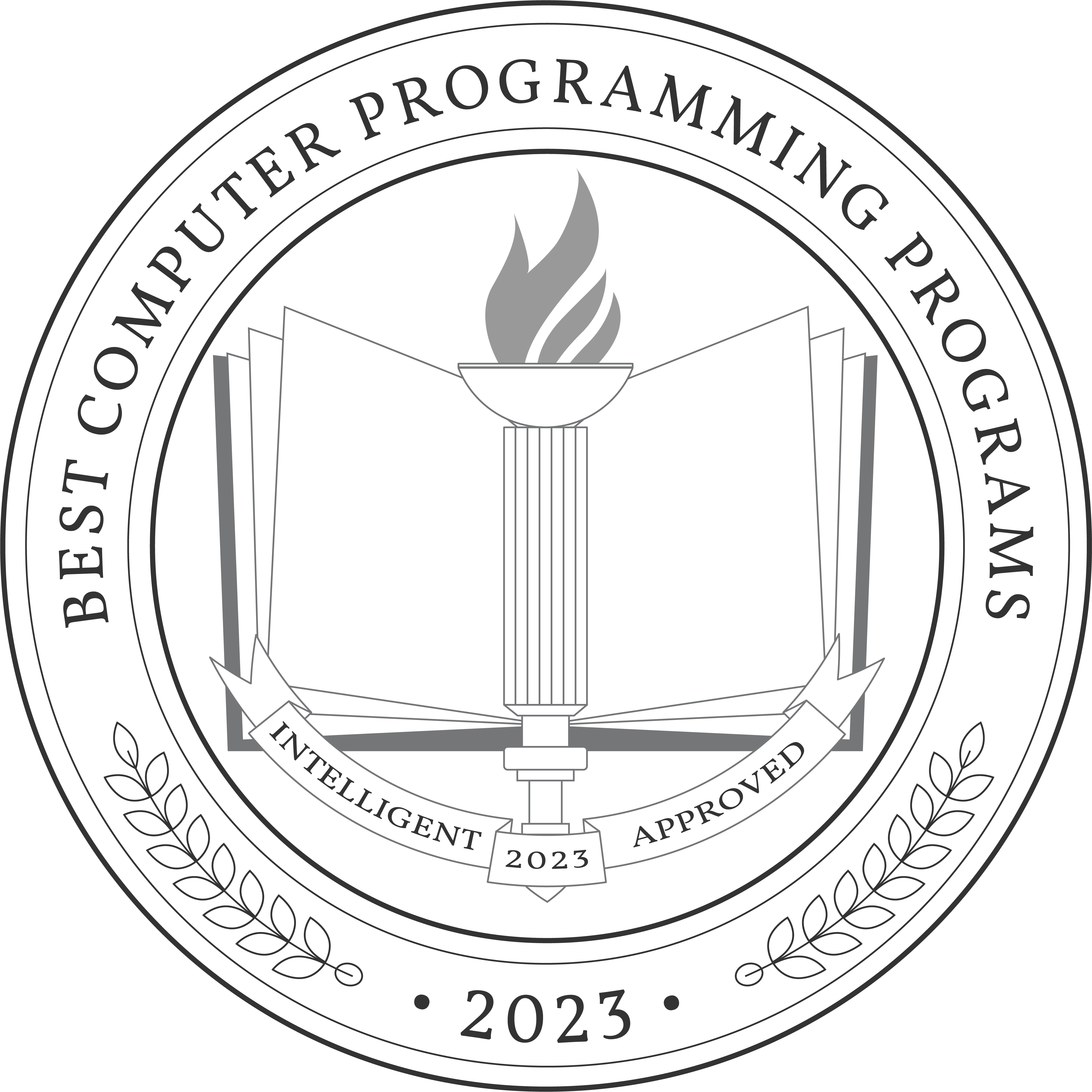Why This Matters
-
PROGRAMMERS EARN 2X MORE THAN THE AVERAGE WORKER
With an average salary of $86,550, computer programmers earn $46,740 more than the national average of $39,810.
-
THE TECHNOLOGY FIELD IS EXPECTED TO GROW BY 11%
Demand for cloud computing services, improved information security, and the collection of storage and big data will lead to continued growth over the next decade.
-
THERE WILL BE 531,200 NEW JOBS BY 2029
The need for new algorithms to understand data and the demand for programming languages that improve software efficiency have increased the number of tech jobs, which is significantly higher than the national average.
Our Research
Our list covers associate and bachelor’s degree programs in computer programming. They teach programming logic, design and development, and data management. We evaluated programs that offer online, on-campus, and hybrid learning. Degrees offered included Associate of Applied Science in Computer Programming, Bachelor of Science in Computer Programming, and Bachelor of Science in Software Development.
The Accreditation Board of Engineering and Technology (ABET) accredits undergraduate programs that meet high academic standards in engineering, technology, computing, and applied science. Schools we evaluated have either national or international accreditation to verify the quality of their degree programs. Accredited programs help graduates improve their future job prospects and career development. They might also be able to transfer credits from accredited programs to other schools.
We evaluated each program on the basis of flexibility, faculty, course strength, cost, and reputation. Then we calculated the Intelligent Score for each program on a scale from 0 to 100. For a more extensive explanation, check out Our Ranking Methodology.
- 52 hours to write this article
- 194 universities and colleges we assessed
- 373 education programs we compared
The Top 50 Computer Programming Degree Programs

Discover More Options
What You Should Know About This Degree
When choosing a career in computer science and information technology, you may want to consider other degrees, such as a bachelor’s in computer science. This degree covers a wide range of topics and specializes in the theory behind computing. On the other hand, computer programming focuses on developing coding and programming skills. Undergraduate programs in computer programming deal with designing and building usable computing solutions, whereas undergraduate programs in computer science take a more theoretical approach. If you’re interested in artificial intelligence, machine learning, and the theory of computation, consider a program in computer science. If you like designing and developing technology-based solutions for real-world problems, studying computer programming might be for you.
Though a decreased job outlook is expected for computer programmers because of outsourcing internationally, the field of computer and information technology will experience fast and continual growth over the next decade. Careers as software application developers, computer systems analysts, and database administrators are available to graduates who hold a degree in computer programming.
Many programming certifications help graduates demonstrate their expertise in specific areas of the IT industry. Certifications such as Cisco Certified Network Associate (CCNA), Network+, Microsoft Technology Associate Developer, and Citrix Certified Associate-Virtualization are valuable to those pursuing a career in computer programming.
What’s Next?
Here are some questions to ask when researching computer programming programs:
- Am I eligible for this program? Computer programming programs are open to students from different educational backgrounds. However, a strong foundation in mathematics and physics is encouraged. Many high schools offer computer science courses to help prepare students for accredited associate and bachelor’s programs. Bachelor’s programs often require students to have a minimum GPA and standardized test scores, as well as proficiency in skills needed for programming, to complete their studies.
- How long does it take to complete this online degree? Associate programs often take two years to complete, and most bachelor’s programs require four years of full-time study. Certain jobs in computer and information technology require a master’s degree, too. Students must earn between 48 and 192 credits to graduate.
Many programs have application deadlines and require prospective students to submit additional materials showing they’re qualified to study computer programming. Check with the school’s admissions department to learn the requirements for the program you wish to attend.
Scholarships, grants, and financial aid packages can help cover the costs of studying for a computer programming degree. Research funding opportunities that might help reduce the cost of your studies.